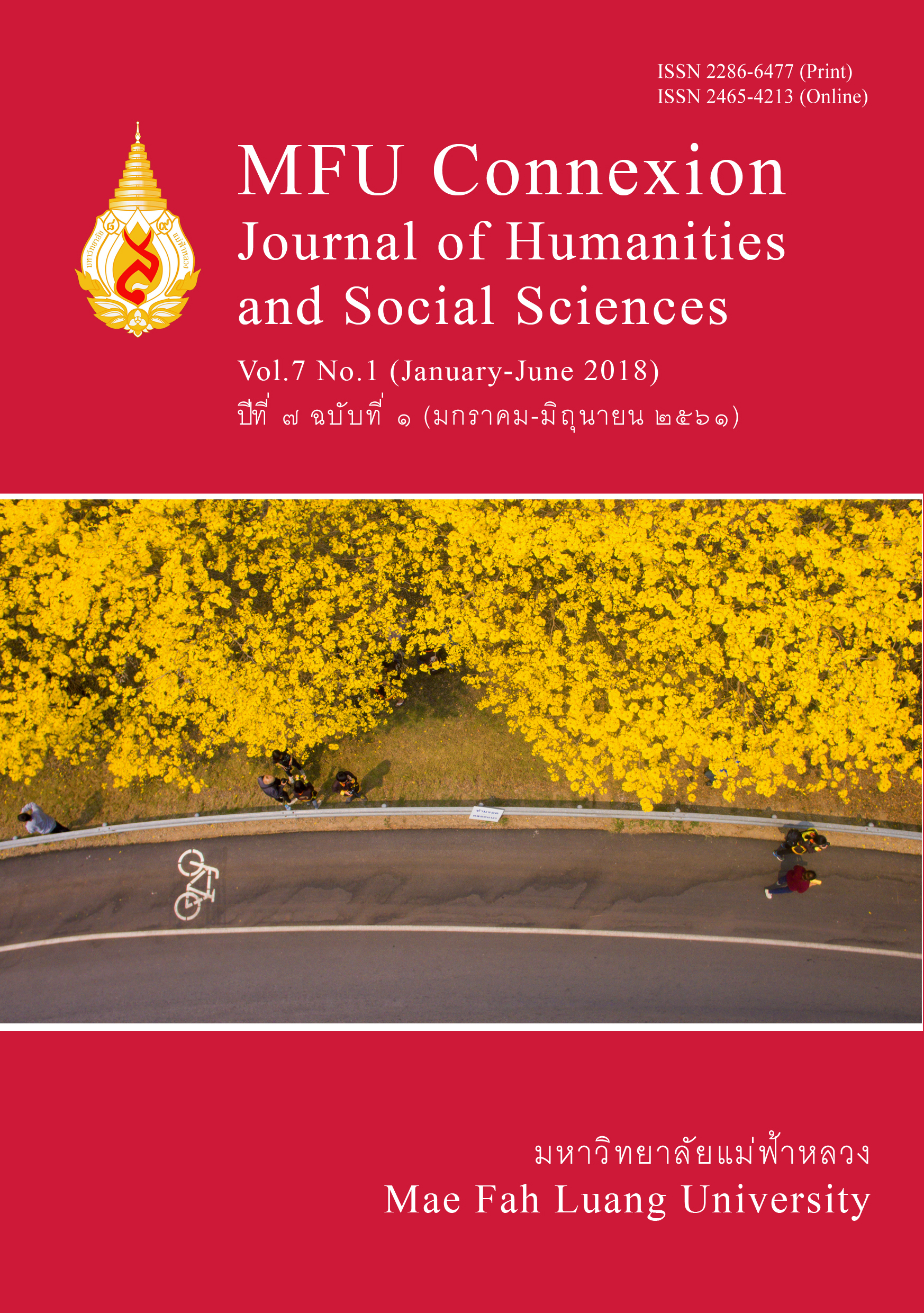Recognition and Enforcement of Foreign Judgments among ASEAN Countries
Main Article Content
Abstract
The ASEAN Economic Community is the approach of free flow of trades and investments within ten countries. The ASEAN Agreements on this issue facilitate to enhance international trades and investments across ASEAN countries including a freedom of commercial contracts. More trades and investments stimulate to more contracts and commercial transactions; as a result, more lawsuits will be filed. Litigations will be proceeded in different state’s courts due to there is not any obstructions. A lawsuit can be filed if it is under jurisdiction rules of that state. Although the proceeding brought to a court; however, when a party who failed a lawsuit and has relocated to another country it would not enable to enforce the court decision in the country where the judgment was not be given. Consequently, the recognition and enforcement of foreign judgment is a questionable consideration. There are no unified rules among ASEAN countries on this subject. Despite the fact that all ASEAN members were signatories of the New York Convention which is the recognition and enforcement of arbitral awards that is not sufficient to the Economic Community. As for another one on the regional level such the European Union (EU), that has the Council Regulation on jurisdiction and the recognition and enforcement of judgments. It is undeniable that the recognition and enforcement of foreign judgments is a factor of the security on international trades and investments within the ASEAN region. Thus, it could be taken into account that whether the same unified rules as in the EU should have in the ASEAN. This article discussed the Brussels Regulation, the civil procedure code of countries in ASEAN, and concluded the subject matter that the ASEAN should issue some rules to recognise and enforce judgments of other member states.
Article Details
Copyright
Connexion: Journal of Humanities and Social Sciences has an exclusive right to publish the accepted articles in any form. However, the author retains the following rights:
1. The right to the ownership of the article;
2. The right to use all or part of the article in his/her other works;
3. The right to re-produce the article for personal use or for use in the author’s organisation, in which case the author must obtain permission from Connexion: Journal of Humanities and Social Sciences;
4. The right to make copies of all or part of the work for educational use or for the author’s use in classroom teaching; and
5. The right to include the work (both the preprinted and printed versions) in an institutional repository.
References
Ariyanuntaka, V. (1996, November) Jurisdiction and recognition and enforcement of foreign judgments and arbitral award: A Thai perspective, Paper presented at the 8th Singapore Conference on Internaitonal Business Law, Available: https://www.coj.go.th/en/pdf/AlternativeDisputeResolution04.pdf [20 November 2017]
Calster, G. V. (2013) European private international law, Oxford: Hart Publishing.
Cambodian Code of Civil Procedure. (2006) Available: https://www.wipo.int/wipolex/en/details.jsp?id=5882 [20 November 2017]
Court of Judicature Act of Malaysia. (1964) Available: https://www.agc.gov.my/agcportal/uploads/files/Publications/LOM/EN/Courts%20of%20Judicature%20Act%201 [20 November 2017]
European Council Regulation No. 1215/2012 on jurisdiction and the recognition and enforcement of judgments in civil and commercial matters (recast). (2015)
European Council Regulation No. 44/2001 on jurisdiction and the recognition and enforcement of judgments in civil and commercial matters. (2002)
Hickin, J, & So, T. (n.d.) Country guides litigation in Asia, Available: https://www.mayerbrown.com/files/Publication/cbef4880-d4c1-49b3-b3fa-02782b899082/Presentation/PublicationAttachment/e53dfa5b-c917-43c9-a85d-c961997642c4/MayerBrownJSMCountryGuideLitigationInAsia.pdf [20 November 2017]
Lightfoot, C. & Hishon R. (2015) The Brussels Regulation recast: what you need to know, Available: https://www.lexology.com/library/detail.aspx?g=6ab0b868-8f83-404e-bcd1-a52f9edf1b62 [21 November 2017]
Markus, A. R. (2012) ‘Harmonisation of the EU Rules of jurisdiction regarding defendants outside the EU: What about the LUGANO countries?’, in F. Pocar, et al. (eds), Recasting Brussels I, pp. 123-126, Italia Srl: Wolters Kluwer.
Myanmar Code of Civil Procedure. (1908), Available: https://www.burmalibrary.org/docs14/Code_of_Civil_Procedure-ocr.pdf [20 November 2017]
Reciprocal Enforcement of Commonwealth Judgments Act of Signapore. (1921), Available: https://sso.agc.gov.sg/Act/RECJA1921 [20 November 2017]
Reciprocal Enforcement of Judgments Act of Malaysia 1958 revised 1972. (1972), Available: https://www.commonlii.org/my/legis/consol_act/reoja19581972416/ [20 November 2017]
Saisunthorn, P.K. (n.d.), The conditional problem of the recognition of foreign judgment, Available: https://www.google.co.th/url?sa=t&rct=j&q=&esrc=s&source=web&cd=2&ved=0ahUKEwj75eG33PTUAhUJuI8KHZo8CJQQFggsMAE&url=https%3A%2F%2Fxa.yimg.com%2Fkq%2Fgroups%2F23432361%2F1108454203%2Fname%2F2461.585.doc&usg=AFQjCNHMRS4d1KUDuT6_F3YcWpCmeX3erA [21 November 2017]
Salonga, J. R. (1995) Private international law, 3rd edition, n.p.: Rex Book Store.
Singaporean Civil Procedure Code. (2015), Available: https://www.singaporelaw.sg/sglaw/laws-of-singapore/overview/chapter-2 [20 November 2017]
Thai Arbitration Act. (2002).
Thai Civil Procedure Code. (1991).
Thai Conflict of Law Act. (1941).


